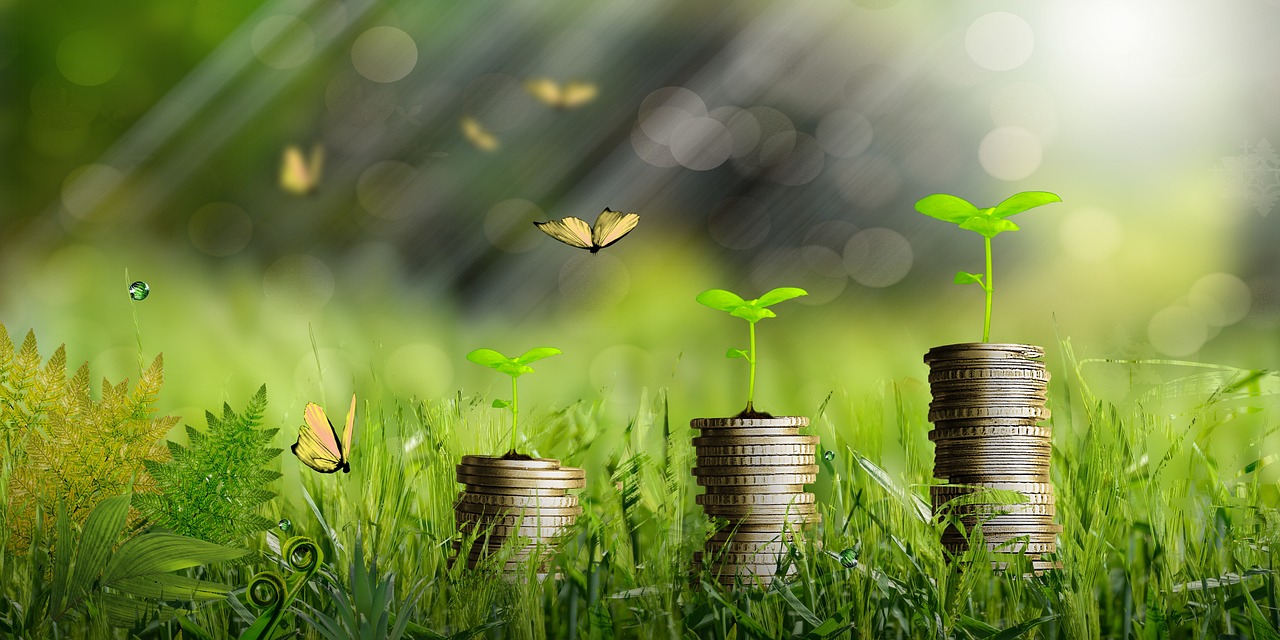Featured
Invitalia’s Funding for Sustainable Projects
Public funding for projects on ecological transition and sustainable innovation is becoming increasingly available and represents an unmissable opportunity for companies. Invitalia has made available several very interesting grants: three of them, in particular, make grants available to companies to cover a wide range of expenses and support projects on innovation, sustainability, decarbonization, and circular economy.

Risks from climate change, biodiversity loss, deteriorating social conditions, and the quality of business management-so-called environmental, social, and governance (ESG) risks affect the actual and potential growth of the economy. Globally, investor attention to ESG factors has increased: based on the World Economic Forum’s 2022 survey, environmental and sustainability profiles are among the most relevant risk categories, in terms of both probability and severity of potential impacts.
A list of reasons is enough to understand the importance of environmental sustainability for companies. Public funding for sustainable projects on ecological transition and sustainable innovation is becoming increasingly available and represents an unmissable opportunity for companies. Invitalia has made available a number of very interesting grants: three of them, in particular, make grants available to companies to cover a wide range of expenses and support projects on innovation, sustainability, decarbonization, and circular economy.
Read more about sustainable projects funded by Invitalia and find the most important business headlines of the day with the Born2Invest mobile app.
€20 million grant for culture and sustainable projects
It is called TOCC and stands for Ecological Transition of Cultural and Creative Bodies. Thanks to a financial envelope of €20 million, included in the NRP, there are incentives granted in the form of non-repayable grants, up to 80 percent of eligible expenses, and a maximum amount of €75,000.
The incentive finances the implementation of activities, sustainable projects, or products marked by eco-design and sustainability. Events, cultural activities, and services with a low environmental impact, strategic planning actions, and energy efficiency programs. Also cultural products with a strong educational and didactic component aimed at raising awareness of respect for the environment; development activities and experimental prototyping, aimed at eco-design of products and the recovery, reuse, and recycling of products.
The measure is aimed at cultural and creative organizations, i.e., micro and small businesses (provided they are already established as of Dec. 31st, 2021), operating in the following areas: music, audiovisual and radio, fashion, architecture and design, visual and performing arts, cultural heritage and artistic crafts, publishing, books, and literature, including software development.
Expenditures for plant, machinery, equipment, software, trademarks and patents, certifications and technical knowledge, masonry work, and facilities, as well as utilities and rents and expenses for new staff hired for the funded project, are subsidized.
Applications can be submitted until 6 p.m. on July 12th, 2023, and will be evaluated through a ranking process.
€1 billion for sustainable projects related to industrial decarbonization
€1 billion to support industrial decarbonization plans aimed at replacing at least 10 percent of the methane and fossil fuels used in production processes in highly polluting sectors with low-carbon and/or renewable hydrogen and possibly the electrification of production processes. This is the amount allocated by the Hard to Abate (HTA) plan for manufacturing companies of any size, provided they have been in operation for at least 2 years. Facilities are granted in the form of a non-repayable grant, with different amounts depending on the type of project carried out and percentages that can reach a maximum overall intensity of 80 percent. In any case, each project must include eligible costs and expenses of no less than €500,000.
For research projects for the use of hydrogen, expenses, and costs regarding personnel, equipment, and materials, acquired knowledge and patents, and consulting services are eligible, while for investment projects involving the production of hydrogen, expenses for masonry works and for the design of the facilities and works to be carried out are also eligible.
Facilities are granted on the basis of a negotiated procedure with a counter-evaluation process and are reviewed and evaluated on a first-come, first-served basis. The window will close on June 30th, 2023, at 10 a.m.
Subsidized and non-repayable financing for green products
The Circular Economy incentive was created to encourage the reconversion of production activities, toward an economic model that maintains the value of products for as long as possible and minimizes the production of waste. Projects eligible for the facilities are those with eligible expenses and costs of no less than €500,000 and no more than €2 million.
The total resources available amount to €219.8 million. The facilities are composed of subsidized financing, up to 50 percent of eligible expenses and costs, and outright grants, with percentages between 20 percent for micro and small enterprises and research organizations and 10 percent for large enterprises.
Costs for employees, tools, equipment, and materials used to carry out the project, and consulting services are eligible.
__
(Featured image by Orlandow via Pixabay)
DISCLAIMER: This article was written by a third party contributor and does not reflect the opinion of Born2Invest, its management, staff or its associates. Please review our disclaimer for more information.
This article may include forward-looking statements. These forward-looking statements generally are identified by the words “believe,” “project,” “estimate,” “become,” “plan,” “will,” and similar expressions. These forward-looking statements involve known and unknown risks as well as uncertainties, including those discussed in the following cautionary statements and elsewhere in this article and on this site. Although the Company may believe that its expectations are based on reasonable assumptions, the actual results that the Company may achieve may differ materially from any forward-looking statements, which reflect the opinions of the management of the Company only as of the date hereof. Additionally, please make sure to read these important disclosures.
First published in StartupItalia, a third-party contributor translated and adapted the article from the original. In case of discrepancy, the original will prevail.
Although we made reasonable efforts to provide accurate translations, some parts may be incorrect. Born2Invest assumes no responsibility for errors, omissions or ambiguities in the translations provided on this website. Any person or entity relying on translated content does so at their own risk. Born2Invest is not responsible for losses caused by such reliance on the accuracy or reliability of translated information. If you wish to report an error or inaccuracy in the translation, we encourage you to contact us.

-

 Crypto3 days ago
Crypto3 days agoXRP vs. Litecoin: The Race for the Next Crypto ETF Heats Up
-

 Biotech2 weeks ago
Biotech2 weeks agoVytrus Biotech Marks Historic 2024 with Sustainability Milestones and 35% Revenue Growth
-

 Biotech11 hours ago
Biotech11 hours agoSpain Invests €126.9M in Groundbreaking EU Health Innovation Project Med4Cure
-

 Crypto1 week ago
Crypto1 week agoRipple Launches EVM Sidechain to Boost XRP in DeFi














